TeachingTraveling.com: What a treat to chat with the famous Peggy Altoff, former President of the National Council for the Social Studies!
Peggy, please tell us a bit about your background.
Peggy: I am originally from Pennsylvania, but have lived and worked in Maryland, and for the past 8+ years in Colorado Springs, Colorado. I have over 40 years in social studies education, as classroom teacher, district coordinator, state social studies specialist, adjunct professor for methods and “literacy and social studies” courses, and purveyor of professional development.
I am also a past president of the National Council for the Social Studies. Currently, I am retired and working as an independent consultant and as a content consultant on a middle school textbook for National Geographic School Publications.
My past travels have included Australia and New Zealand, Canada and Costa Rica, as well as extensive travel within the United States
TT: Amazing! What was one particularly fabulous travel adventure?
P: In the summer of 2010, I was part of a group of 21 educators, pre-K through college, who traveled in 4 countries in Southern Africa through GEEO, Global Exploration for Educators Organization. We spend three weeks on a truck, beginning in Johannesburg.
Our first stop was Kruger National Park to camp and view African wildlife (impala, lion, elephant, giraffe, water buffalo, etc.) in their natural habitat. From there, we journeyed to the beaches of Mozambique for snorkeling and other water activities along the Indian Ocean. Visits to schools and an orphanage enhanced our understanding of education in this and other countries.
On to Zimbabwe we went for stops at Antelope Park, where we walked with lions in the wild, then to Victoria Falls, one of wonders of the natural world. Camping at night several miles away, we could still hear might roar of the water. Then, we traveled to Botswana for a memorable visit to Chobe National Park where we finally saw a leopard, then 2 nights camping in the Okavanga Delta.
Along the way, there were more stops: border crossings, a traditional farm, and towns and cities. Each offered its own opportunities for learning about people, culture, and the myriad of contrasts in the lives of the people of the countries visited.
The memories of this adventure are still vivid, and most are of pleasant times with wonderful colleagues and new friends. But there were challenging moments (long days on the truck cold camping weather!) but the experiences were well-worth the time, effort and energy expended.
TT: What an opportunity! How did you track down this travel adventure?
P: GEEO.org had contacted social studies organizations, including the Council for State Social Studies Specialists, of which I am an associate member. I saw the information that they posted, contacted a friend, and we decided to go.
TT: How did you find the money to fund this travel?
P: Personal funds financed the travel. The good part is that GEEO.org plans affordable travel, and this adventure was 1/3 the cost of an acquaintance’s trip to Africa, for twice the time and four times the number of countries visited. It was money well spent.
TT: It sounds like it. Tell us one moment from your travels that was particularly powerful.
P: I alluded to this earlier. A group of about 12 of us walked with three 16-month old lions and their two handlers in Antelope Park and Zimbabwe. The park is a sanctuary where animals are prepared to be released back into the wild. We were cautioned to walk with, and slightly behind, the animals, and never in front, which would result in becoming prey.
It was beyond interesting to observe them up close, to stop when they stopped, to gaze when they gazed, to walk when they walked. At one point the lone male stopped and laid down. Those of us who were close could approach from the rear, kneel and pet the animal’s back. This felt like a sacred moment, and when recalled, can still bring tears to my eyes. The moment was one of the most powerful in my lifetime, and I felt truly blessed.
TT: Lion stroking?! Amazing! How have your travels impacted you in your career?
P: I came back and visited several elementary classrooms, to share slides and experiences, and to interest students in travel. In addition, this experience has changed the way I read newspapers and magazines, and view television and on-line news.
I look for news of these countries, and feel more of an affinity for the problems faced and the accomplishments of these four nations that sometimes still struggle with post-independence challenges of emerging democracies and economies.
TT: Wonderful. How have your travels impacted you as a person?
P: All travel leads to growth and understanding. The biggest impact is that I want to do more travel, meet people from other places and learn from them. I have also been enriched by sharing the experience with other educators and learning about their classrooms and their students. Keeping in touch with them through social media is a priority, and it is my hope that we meet again and continue our friendships.
TT: What advice do you have for other educators who are dreaming of travel?
P: Save, and go. Start small, and know that you are never alone. Make this a priority, and don’t wait until next year, or the next. Many of my traveling companions were in the early years of their teaching careers. They worked extra jobs, sought financial support from various organizations, and emotional support from families.
All recognized that travel broadens perspectives and allows them to be better parents, children, siblings, friends and teachers. And I do recommend GEEO.org as a place to start. The executive director, Jesse Weisz, is personable and always available to answer questions and provide encouragement.
The website provides a wealth of information for each trip so that all participants are as fully prepared as possible when they set foot on foreign soil.
TT: Thanks so much, Peggy! Readers, what questions and comments do you have?

The author, Lillie Marshall, is a 6-foot-tall National Board Certified Teacher of English from Boston who has been a public school educator since 2003. She launched TeachingTraveling.com in 2010 to share expert global education resources, and over 1.6 million readers have visited over the past decade. Lillie also runs AroundTheWorld L.com Travel and Life Blog, and DrawingsOf.com for educational art. Do stay in touch via subscribing to her monthly newsletter, and following @WorldLillie on social media!
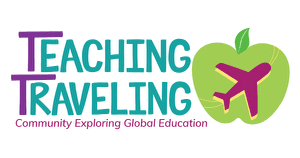
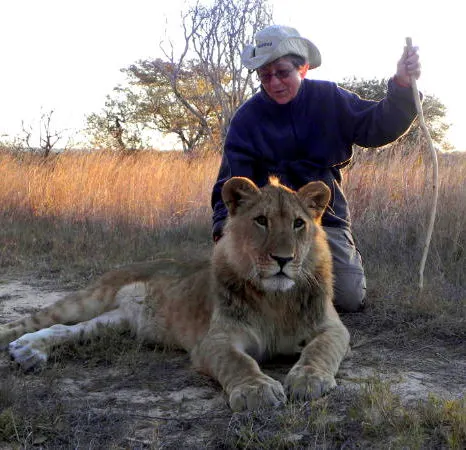
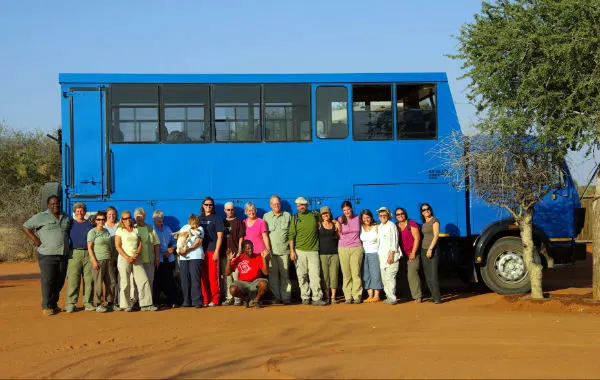
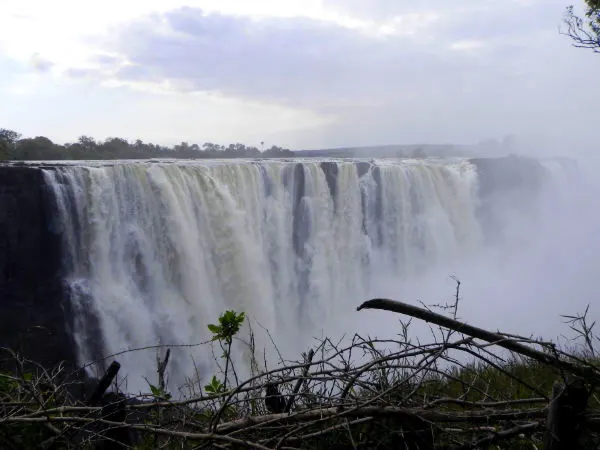

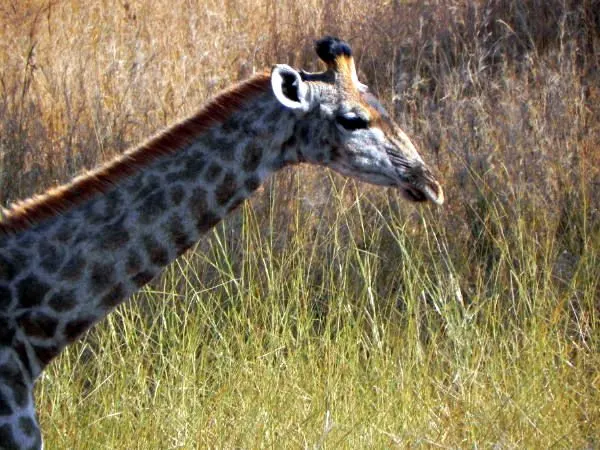

Koraliz
Sunday 18th of December 2011
The picture of the lion made me think of a tiger on this show that killed someone because tigers hate it when humans run away in panic. Then, the picture of the giraffe made me think of this super cute stuffed giraffe I saw at Old Navy.
Genesis Lumahan
Tuesday 3rd of May 2011
Woah. That bus looks HUGE. Africa seems beautiful. The places you've been to look amazing. It seems like you're really adventurous. It's great you're willing to share your experiences with others. It's great to see people living their life to the fullest by traveling!
Peggy
Saturday 9th of April 2011
Although I took my own tent, I would not do that again. Those provided by GEEO were easy to set up and better suited to all situations. Make sure you have a good sleeping bag and sleeping pad. Also, most of the showers were actually hot, depending on your timing. There are also opportunities to "upgrade" at many locations, meaning sleeping in a bed, sometimes in your own room, although this cost extra. There were 8 of us over 50, and we all made it.
Paul Hurteau
Friday 8th of April 2011
Hi Peggy,
I started traveling as a teacher in Africa (Kenya) over 20 years ago, so I found your stories and words very inspiring. I am now the Director of a new nonprofit that connects US and global classrooms to build cross-cultural awareness in the context of the curriculum. I have been at this work for many years on a small scale; but, we are now aiming to expand our work and involve more US schools. Are you available to share insights and suggestions?
Best wishes for your mobile retirement!
Patti
Tuesday 29th of March 2011
Peggy, thank you for your helpful insight into travel with GEEO in S. Africa. I have been considering this trip, but have wondered about the cold weather camping and showering. Thank you for mentioning the "challenging moments". How difficult was it to pitch your own tent each time after long hours traveling on the truck, taking cold showers, and sleeping on the ground for 20+ nights? I love travel and adventure, but I am over 50 (I recognize you are not one of the ones just starting out either!) and so wonder if I would be able to "keep up". Thank you. Patti